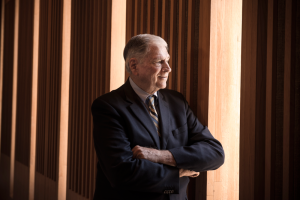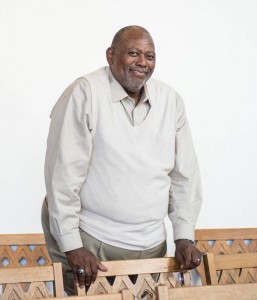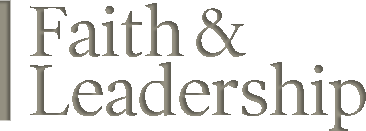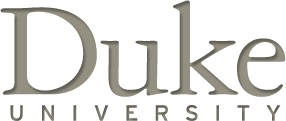2016 grantees cast vision for Leadership Development Grants
2016 Grantees Cast Vision for Leadership Development Grants
2016 Leadership Development Grantees
Lott Carey Global Christian Missional Community, Landover, Md.
Lott Carey is a multicultural, ecumenical, global Christian missional community born of African-American Baptist heritage that provides prayer partnership, financial support and technical assistance to indigenous communities around the world who engage in ministries of evangelism, compassion, empowerment and advocacy.
Project title: Developing Leaders the Lott Carey Way
Through the Leadership Development Grant, Lott Carey will nurture early career leaders as they embrace values of collaboration and global vision in their leadership development and practices. Lott Carey Executive Secretary-Treasurer David Goatley, who will serve as project director, identifies collaboration as a significant leadership challenge and opportunity. “While younger leaders may have a greater tendency toward collaboration compared to the generation before them, they often witness less collaborative approaches in pastoral leaders,” he wrote. “As a result, the external influences to replicate presumed effective or successful models can work against internal inclinations.” Participants in Lott Carey’s Leadership Development Grant program will be invited to lead in one of 60 Mission Impact Team positions in ways that affect global and collaborative approaches to serving and leading.
The Black Ministerial Alliance (BMA) of Greater Boston, Inc., Boston, Mass.
The Black Ministerial Alliance provides spiritual nurture for clergy and advocacy and program services for all of Boston’s communities. It serves as an intermediary organization working in partnership with more than 100 nonprofit agencies annually to make services delivered to low-income youth and their families more meaningful and effective.
Project title: Ministry Innovation Lab — Developing Clergy Leaders to Engage the Communities We Are Called to Serve
Through the Leadership Development Grant, the Black Ministerial Alliance will nurture “Now Generation” faith leaders from the BMA community to work on theological frameworks and collaboration concepts in what they call a “Ministry Innovation Lab.” The lab will be led by BMA Executive Director David Wright and will equip participants with the theology and the “hard and soft skills” needed to effectively identify, agree on and address priority community issues and create partnerships with the social and political leaders necessary to affect meaningful and measurable positive change in Boston.
Convención, Hispanic Baptist Convention of Texas, Lubbock, Texas
Convención is third largest gathering of Hispanic Baptists in the world and is affiliated with more than 1,000 congregations. They seek to be a family of diverse and spiritually healthy churches, connecting and developing resources to impact Texas and the world with the presence of Christ in the fulfillment of the Great Commission.
Project title: Young Latino Leadership Development Initiative
The goal of Convención’s Leadership Development Grant program is to engage, activate and immerse emerging Latino leaders in personal and professional leadership development experiences that are both culturally unique and relevant to their Hispanic Baptist culture and calling. They will offer a year-long structured experience addressing developmental, organizational and management skills; contextualized leadership skills for Hispanic ministry; and structured mentoring with workshops, online resources, shadowing and mentoring.
Urban Presbyterians Together, Rochester, NY
Urban Presbyterians Together is an alliance of nine churches with a total of 2,000 members in Rochester, NY. They represent both small and large racially diverse downtown churches with goals of encouraging high-quality schools for all; combating racism; improving police-community relations; and identifying other partners and financing to increase effectiveness in these ministries. Urban Presbyterians Together recognizes they are able to impact their city in much larger ways when they work together.
Project title: Urban Presbyterians Together: Renewing the Vision for a Faithful Future
The overarching goal of Urban Presbyterians Together’s Leadership Development Grant proposal is to strengthen and enhance its capacity to serve its members and the broader community by engaging in strategic planning that leads to a new vision, a ministry roadmap and a series of activities (training events, consultations, etc.) that will grow and deepen leadership. They will engage in a purposeful assessment of their current mission and will determine future directions that will include goals for each congregation, individual and shared staffing models, and joint projects (Presbyterian, ecumenical, interfaith) that will seek to address the urgent needs of the Rochester community.
The Second Episcopal District of the African Methodist Episcopal Church via Turner Memorial AME Church, Hyattsville, Md.
The Second Episcopal District of the AME Church is home to more than 1,200 associate ministers serving among 400 churches. Most are unpaid bi-vocational ministers, faithfully serving their churches out of commitment to the call on their lives and to the people they serve. Turner Memorial AME Church is a prominent church in the district and is known, under the current leadership of the Rev. Daryl K. Kearney, as a leadership development incubator. Project title: Aaron’s Army Leadership Summit Series
Through the Leadership Development Grant, Turner Memorial endeavors to cultivate the leadership skills and nurture the ministry gifts of associate ministers serving throughout the Second Episcopal District. Goals for a Leadership Summit Series for associate ministers include enhancing their gifts and skills, equipping them to execute at new levels of ministry within their home churches, and inspiring them to reframe their own ministerial identity and perceptions through gatherings and mentoring circles.
Positive view of Christian institutions helps Florida staffer transition into leadership
Positive View of Christian Institutions Helps Florida Staffer Transition into Leadership
David Fuquay
Director, Board of Higher Education and Campus Ministry Florida Conference of the United Methodist Church Denominational leadership participant
Taking on a denominational leadership role is a big transition. David Fuquay experienced this when he moved from being a campus minister at University of Florida to a conference staff role.
“You’re still working in the church, but the day-to-day work and how you’re living out your vocation changes pretty significantly,” he said.
He decided to take part in the four-day Denominational Leadership training to help him adjust to his new job as executive director of Board of Higher Education and Campus Ministry of the Florida Conference of the United Methodist Church.
“I wanted to find an environment where I could be with others who had made that transition,” he said. “And I really wanted to find a time apart, where I could step back and look at the big picture of my own journey and my own transition.
“That’s what I was looking for, and I think I certainly found that through the program.”
Fuquay said one of the aspects he most appreciated was being in an environment “where ‘institution’ isn’t a dirty word.”
This is reflected in the Leadership Education concept of vibrant institutions “that don’t exist to create bureaucracy, but exist to generate space for others in the institution to thrive,” he said.
“I think being where that’s the tone — even apart from practical skills — was refreshing, and being able to get in touch with why the work I’m doing is important when it’s done well, and what does it look like when it is done well,” he said.
Fuquay said he didn’t need convincing that Christian institutions are important – he said it was the Annual Conference and the Conference Youth Ministry that really shaped him as a leader – but he appreciated the affirmation of his vocation.
In the time since he took part in Denominational Leadership in 2012, Fuquay also has nominated others from his conference to take part in the program. The Florida Conference has seen a lot of turnover, so many people are adjusting to new positions.
“One of the things I’ve always struggled with is finding the right kind of continuing education experiences that are substantive enough to be worth the time and the money,” Fuquay said. “It was good for personal development, but it was also just the environment of being with people of that caliber.”
Money and faith: William G. Enright
Money and Faith: William G. Enright
William G. Enright
Karen Lake Buttrey Director, Lake Institute on Faith & Giving
The Rev. William G. Enright of Indianapolis is a man of many gifts. Prophecy does not seem to be among them.
Here is someone who has spent the past 10 years and more engaging people of faith and faith communities in conversation about giving. But he laughs as he recalls a younger version of himself — a newly minted associate at a Presbyterian church in Chicago in the 1960s informing a church secretary that he wasn’t interested in talking about money.
“I told her, ‘That’s not my issue. God’s given me a higher calling. I don’t have to be concerned about money.’ I look back and see where I am now …”
Where he is now — and will be for a few more months — is head of the Lake Institute on Faith & Giving, part of the Lilly Family School of Philanthropy at Indiana University-Purdue University Indianapolis. By the time he leaves the job this summer (he will stay on as senior fellow), Enright will have spent more than a decade in one long discussion about what he calls “the big American taboo,” the intersection of religion and money.
Along the way, Enright has helped transform the conversation nationally about congregations, faith and giving. Bringing together experts in both pastoral ministry and academic research, Enright and the Lake Institute have fundamentally changed the way many local congregations think and talk about money.
Rather than being about internal church matters such as furnace repair and roofing estimates, “money talk” in those congregations is now about treasure — treasure that can strengthen religious commitments and create health, love and care for others in a hurting world.
To Enright, it all begins with a right understanding of philanthropy.
“I find the word ‘philanthropy’ to be interesting,” Enright said. “It means ‘love for humanity,’ but I put a different spin on it. It’s love for humanity, but it’s also giving for the flourishing of humanity. How do we help people all around us to become better and address what their basic needs are?”
Enright didn’t develop that kind of thinking solely at the Lake Institute but brought much of it with him when he made the transition from the pulpit. From 1981 to 2004, he was pastor of Second Presbyterian Church, an imposing structure in a well-heeled neighborhood often described as “Indianapolis’ Protestant cathedral.”
As pastor, Enright often broached the money-church taboo, teaching giving as fundamental to Christian joy and molding the congregation into one that “wraps its arms around the city,” said Craig Dykstra, a former parishioner.
“He was never shy about talking about the relationship between faith and money, but it rarely had much to do with pleas for funding the congregation,” said Dykstra, former senior vice president for religion at Lilly Endowment Inc. and now research professor of practical theology at Duke Divinity School and senior fellow at Leadership Education at Duke Divinity.
Generosity and the Christian life
Instead, Enright maintained that the relationship between faith and money was ultimately an issue of pastoral care, Dykstra said. To Enright, generosity and giving build on gratitude to God for God’s benevolence, which in turn prompts a sense of responsibility for the well-being of the city and the neighbor.
“To Bill, generosity and giving is the constituent dimension of the Christian life,” Dykstra said.
If so, then why have church people been so unwilling to talk about money? Where does the taboo come from?
Enright links it to the rise in the 20th century of the word “stewardship” as a euphemism for “fundraising” by people looking for a way to discuss money without actually using the word.
“Unfortunately, stewardship really has nothing to do with fundraising,” Enright said. “It’s about being a faithful manager of the resources and possessions with which we have been blessed and we have been given. We corrupted the word ‘stewardship,’ and it became a synonym for ‘fundraising.’”
As a result, at least in the Protestant tradition, the only time the pastor talked about money was in the annual stewardship sermon, which was part of the congregation’s annual fundraising effort.
The irony for Christians, Enright said, is that Jesus had more to say about money than any other subject.
“And that’s New Testament scholars who say that,” Enright said. “Faithful use of possessions and the kingdom of God are the two subjects that he spoke about most frequently. So the question that we ask is, Where did this get lost in the Christian tradition? Why did that get neglected when it was so central?”
As part of the broader Lilly Family School of Philanthropy, the Lake Institute works to answer those and other questions, helping clergy and other faith leaders think differently and talk openly and honestly about the relationship between faith and money.
“One of the principles we use in working with clergy is that you have to learn to talk about faith and giving with integrity,” Enright said. “Don’t dodge the lectionary, the text, when it deals with that, because it deals with that frequently. But separate your teaching on the faithful use of possessions from your fundraising.”
Established in 2003 — with Enright becoming its first full-time director in 2004 — the Lake Institute explores the relationship between faith and giving across various religious traditions, offering classes and programs for faith leaders, fundraisers and others. The institute’s mission is “to foster a greater understanding of the ways in which faith both inspires and informs giving by providing knowledge, education, and training.”
Enright compared the institute’s courses and seminars to a trip to the doctor for the participants. But rather than providing a diagnosis and a prescription, the institute gives its “patients” the tools with which to make their own diagnoses.
Toward that end, the institute last year began offering an executive certificate in religious fundraising, an intensive training program for clergy leaders. Still in its pilot stages, the program is offered in partnership with various seminaries and colleges around the country. Two sessions were offered in 2013, and another seven are scheduled for 2014, all with waiting lists.
‘I came away with a new zeal’
"I Came Away with a New Zeal"
Larron Jackson
Ministry and missions coach, Denver cluster, American Baptist Churches USA, Denominational Leadership participant
For the Rev. Dr. Larron Jackson, taking part in Denominational Leadership crystallized a question he already had been considering: How can we be faithful to our traditions and yet break free to witness for Christ in this time?
“We do wonderful in the sanctuary. We have our traditions, our music, the sermons — everything comfortable. But how do we go out and sing the Lord’s song in a different land? How do we go out and talk to people?” he said.
Jackson is a former NFL offensive guard who detailed his rough-and-tumble path to the pulpit in his autobiography, “The Ghetto, the Gridiron and the Gospel.” He heeded a call to ministry in 1978, at the end of his football career, and earned an M.Div. from the Candler School of Theology and a doctorate from Union Theological Seminary.
An official in the American Baptist Churches USA, Jackson said participating in the four-day-long program in 2013 “has really created an unrest in my spirit, but it’s a good unrest.”
Sessions with faculty members Dave Odom and Marlon Hall were particularly inspiring, he said, driving home the idea that ministry has to change to survive — and to fulfill its mission.
“I think both of them challenged us to see ministry not simply along denominational lines, but to hear Christ’s voice afresh in this age in which we are called to minister,” he said.
“I came away with a new zeal — I’ve been telling everyone about the leadership experience we had together.”
Jackson said there were a number of rich aspects in the Denominational Leadership program: the educational experience, thinking about denominations in new ways and engaging with other leaders from different traditions.
“I got more than I had hoped I would get from it,” he said. “A whole lot more.”
Houston pastor works with denominational leaders to inspire creativity
Houston Pastor Works with Denominational Leaders to Inspire Creativity
Marlon Hall
Denominational Leadership Faculty
How is ministry like jazz? Marlon Hall, founder of the Awakenings Movement, a nontraditional, nondenominational church in Houston, challenges denominational leaders to answer that question.
Using stories from his own life and work, Hall described to participants in a recent Denominational Leadership program how he “curates human potential,” helping others discover their unique, God-given gifts.
In the process, his innovation disrupts predictable patterns and transforms “junk to jazz.”
Hall is one of a number of Leadership Education faculty who work with program participants to understand how improvisation can be integrated into their leadership skills. Using the arts to fire the imagination and inspire leaders is a theme woven into Leadership Education’s teachings.
Creativity and imagination are keys to Hall’s ministry in the Pleasantville section of Houston.
Among its projects is a public art installation consisting of six 4-foot-by-6-foot aluminum panels featuring the likenesses of historical figures, both local and national, created by Robert Hodge, a Houston artist. Each panel has a bar code that can be scanned for more information.
It is a modest manifestation of a big idea that Hall has nurtured for years.
“We are all suffering from cultural amnesia,” said Hall, a trained anthropologist who applies his observational and analytical skills to contemporary culture. “We seem to have no memory of who we are, who God is and what he has called us to do. … In order to imagine the future, we have to remember the past.”
Reviving cultural memory and connecting to the past is a central idea behind both the installation and the larger Awakenings Movement, which Hall founded in 2005 because he felt that traditional churches no longer spoke to the lives of young people.
Too many churches were tied down in outdated traditions and were boring, he said. People associated church with much that had nothing to do with following the example of Jesus.
Hall grew up in a family of religious nomads; he was educated at Fisk and Vanderbilt universities and ordained in the United Church of Christ after attending what is now the Houston Graduate School of Theology.
He then worked at Windsor Village United Methodist Church, the 16,000-member Southwest Houston congregation led by the Rev. Kirbyjon Caldwell, where he was inspired by the teachings of John Wesley. Among other things, Hall led an outreach ministry there that targeted Gen Xers, just as the Awakenings Movement does now.
One way he did that was by redefining the meaning of church.
“I did an anthropological study about why young people were not going to church,” he said. “The study revealed that people my age didn’t want to go to the church building itself.” They were receptive to the teachings of Jesus and to following his example, but the church building — and much that they associated with it, including fundraising and dogma — turned them off, Hall said.
So Hall’s Awakenings Movement was founded with no building. From the start, it has held worship services in restaurants, bars, coffee shops — “accessible worship,” he calls it. Hall tries to hold services in one place for no more than three months at a time.
“I wanted to let them see that we were not a church; we were a people,” he said. “Ministry can be life art. Beauty is the goal of everything that we do.”
















